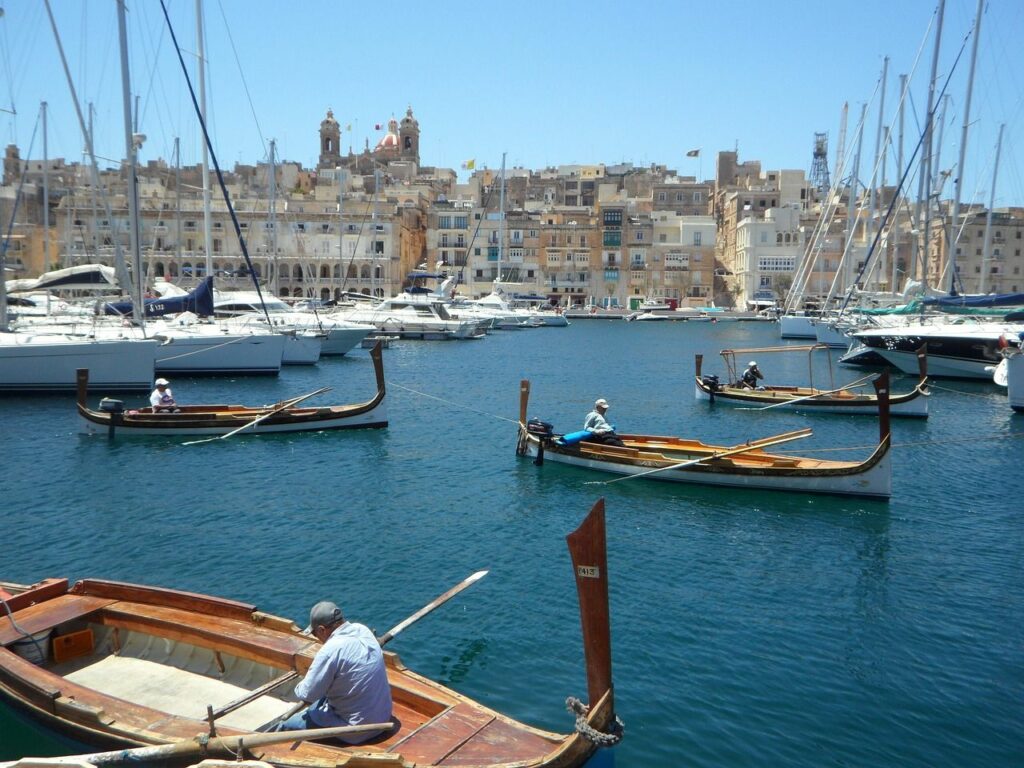Credits: Supplied Image; Author: Client;
Visas and Residency
Malta and Portugal both allow simplified residency schemes for EU and non-EU citizens:
EU Citizens
As EU members, Malta and Portugal allow EU citizens to move and reside without a visa. Just register your residence within 3 months of arrival.
Non-EU Citizens
Malta Permanent Residence Programme: There are two ways to qualify via this scheme. One involves making a government contribution of 98,000 Euros, a charitable donation of 2,000 Euros, and renting a property for five years. The other involves lesser financial contributions but a property purchase worth at least 300,000 Euros.
The D7 Passive Income Visa for Portugal allows non-EU citizens to gain temporary residence without a major investment, provided they have stable annual passive income exceeding €8,460 per year (plus additional funds). Income can be from foreign pensions, investments, remote work, etc.
Lifestyle Factors
Malta:Languages: Maltese and English are the official languages. Over 90% speak English but Maltese is important culturally.Climate: Mediterranean climate has mild rainy winters and hot dry summers. Average highs of 15°C in winter to over 30°C in summer.Scenery: Malta is an archipelago with three main islands. Coastlines are dominant with fortified cities like Valletta built on cliffs. There are limited green spaces. Activities and culture: Malta is renowned for history, with ancient temple sites and Baroque architecture. Activities include beaches, sailing, scuba diving, and exploring sites like the medieval citadel Gozo. Vibrant festivals year-round.Downsides: High population density, especially on the main island. Busy roads and crowded beaches in peak season.
Portugal:Language: Portuguese is the sole official language. English is less widely spoken than in Malta.Climate: The climate is mild year-round in the south with cooler and rainier winters in the north. Scenery: Diverse landscapes including coastline, mountains like the Serra da Estrela, green hills dotted with Quintas (farm estates), and historic towns like Sintra and Coimbra.Activities: miles of beaches for surfing and water sports, golf, hiking, Port wine region, and historic sites like the Jerónimos Monastery. Rich cultural traditions around food, music (fado), festivals.Downsides: Bureaucracy can be slow. Public transit is limited outside cities. There are language barriers for monolingual expats.
Both destinations offer amazing Mediterranean lifestyles. Portugal’s larger size gives it more diverse landscapes while Malta can feel crowded but offers deep history.
Jobs and Business
Malta has a thriving and robust economy with low unemployment around 3%, making it relatively easy to find work. It’s very dependent on foreign trade, but top industries include:
Tourism – hotels, restaurants, attractions.iGaming – Malta is a hub for online gaming companies.Financial services and banking.Aviation – large aircraft maintenance and registration sector. Maritime – shipping and logistics companies based in the ports.Manufacturing – pharmaceuticals, electronics, plastics.
While English is widely used in business, Maltese language requirements can pose barriers for some work permits and jobs.
Portugal has around a 6.58% unemployment rate. Top industries include:
Tourism – especially in the Algarve coastal regionManufacturingTextilesTechnologyTelecommunications
The decision of whether to move to Portugal or Malta is a complex one. Take advice from experts like real estate agents, recruitment agents, lawyers, and accountants before making your decision.
Disclaimer:
The views expressed on this page are those of the author and not of The Portugal News.
Source link : http://www.bing.com/news/apiclick.aspx?ref=FexRss&aid=&tid=66f477bb31b24598980a4c834f8964f8&url=https%3A%2F%2Fwww.theportugalnews.com%2Fnews%2F2024-09-25%2Fmoving-to-malta-vs-portugal%2F92358&c=15832142927505980991&mkt=en-us
Author :
Publish date : 2024-09-25 09:31:00
Copyright for syndicated content belongs to the linked Source.
